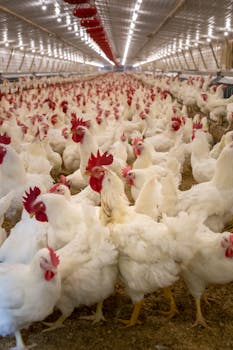PWG Business News: Your Gateway to Market Intelligence
PWG Business News is committed to providing real-time updates and expert-driven insights across various industries, including technology, healthcare, finance, energy, automotive, and consumer goods. We deliver carefully curated news, financial reports, and research-based updates, helping businesses and professionals stay informed and competitive in today’s dynamic business environment.
Our News section covers industry-shaping events such as market expansions, new product launches, mergers and acquisitions, policy shifts, and corporate earnings, offering a strategic advantage to decision-makers seeking actionable intelligence. By bridging industry leaders, stakeholders, and professionals with data-driven content, we empower our audience to navigate the complexities of the global market with confidence.
PWG Business News: Keeping You Ahead in the Business World
At PWG Business News, we deliver timely and credible business news, covering global market trends, economic shifts, and emerging opportunities. With comprehensive coverage spanning healthcare, technology, telecommunications, utilities, materials, chemicals, and financials, our platform provides accurate, well-researched insights that drive success for executives, investors, and industry professionals alike.
Whether you're tracking regulatory updates, innovation trends, or strategic collaborations, PWG Business News ensures you have access to high-quality, data-backed reports that enhance brand visibility, credibility, and engagement. Our mission is to keep you ahead by serving as your trusted source for impactful industry news and market intelligence.
Stay informed with PWG Business News – your gateway to the insights that shape the future of business.
Health Care

The United States is facing a severe egg shortage due to an ongoing bird flu outbreak, which has resulted in the deaths of nearly 170 million chickens and other birds since 2022. This devastating impact has led to a significant surge in egg prices, prompting the government to seek solutions to stabilize the market. One key measure involves increasing egg imports from countries such as Brazil, Turkey, and South Korea.
Brazil, in particular, has seen a notable increase in egg exports to the U.S., with imports nearly doubling in February. This shift is part of a broader strategy by the Trump administration to alleviate the pressure on domestic egg supplies and prices. While the eggs from Brazil were initially used for pet food, they are now being considered for use in processed foods such as cake mixes and salad dressings.
Despite these efforts to increase egg availability, food safety experts have raised concerns about potential contamination risks associated with using eggs from non-traditional sources. The U.S. Food and Drug Administration (FDA) is currently reviewing proposals to allow the sale of eggs laid by chickens raised for meat, a move that could further complicate the situation.
In addition to Brazil, the U.S. is also looking to Turkey and South Korea for egg imports. However, these imports face new challenges with President Trump's recent announcement of potential tariffs on imported eggs. The tariffs could significantly impact the cost-effectiveness of these imports, potentially leading to higher prices for processed egg products in the U.S.
The proposed tariffs, which include a baseline rate of 10% for eggs from Turkey and Brazil and a 26% rate for South Korea, could force manufacturers to absorb the additional costs or pass them on to consumers. This development comes at a critical time, as egg prices have begun to stabilize slightly following weeks of record highs.
As the U.S. continues to navigate this egg shortage, exploring vaccine options and enhancing biosecurity measures remain crucial components of long-term strategies to combat the bird flu outbreak. The administration's $1 billion plan to address the issue includes research into vaccines, which could provide a sustainable solution beyond relying on international imports.
The U.S. reliance on international egg imports highlights the severity of the current bird flu crisis. While efforts to increase supply are underway, the introduction of tariffs poses new challenges that could affect both producers and consumers. As the nation seeks stability in the egg market, maintaining a balance between economic viability and food safety will be essential.